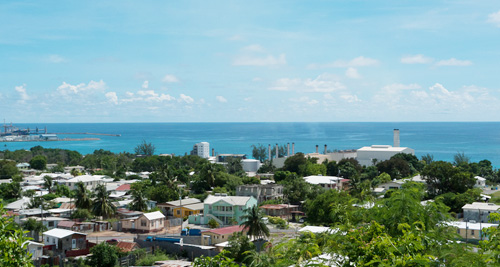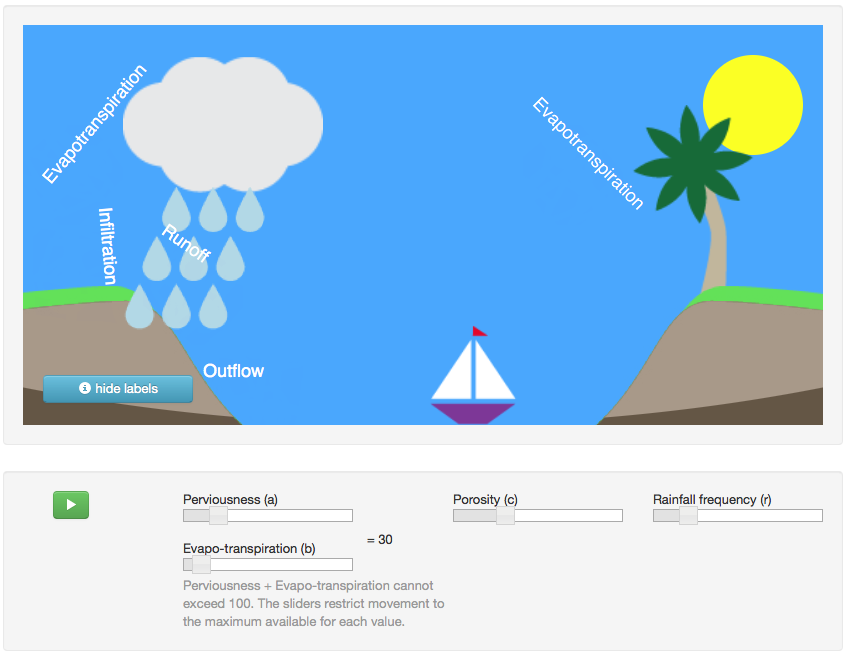
In the Caribbean, most states rely on a single source of water for all domestic, agricultural, and industrial needs. The challenge of managing this limited resource is worsened by variations in precipitation brought on by climate change. Furthermore, the region lacks the skilled water resource and climate risk managers needed to develop effective strategies to cope with these problems.
Two online courses recently launched in an effort to tackle these problems. The courses are part of the Water and Climate Education Program, an educational initiative meant to provide professionals in the water and associated sectors in the Caribbean with the knowledge and concepts necessary to manage water resources and risk related to climate change and variability. In doing so, the courses will improve local and regional capacity to manage climate-related risk and will provide participants with the technical expertise to mitigate existing water resource problems and develop sustainable water resource management programs.
Participants from across the Caribbean region used a suite of online tools for the course: Moodle for general course administration; Blackboard Collaborate for web conferencing; and custom online educational modules created by CCNMTL to help students prepare for each class.
A team of CCNMTL designers, developers, and educational technologists worked to create waceponline.org, the website on which the courses are hosted. They also created an interactive animation of the hydrologic cycle - the continuous movement of water on, above and below the surface of the Earth.

The inaugural course, Introduction to Water Sustainability and Climate, was given in January 2014 by Dr. Casey Brown, associate professor at the Department of Civil and Environmental Engineering at the University of Massachusetts at Amherst and adjunct associate research scientist at Columbia University. The interactive hydrologic cycle was introduced in this course. Dr. Brown “was really impressed with how most of the students used the interactive, and their ability to visually demonstrate the key concepts we were discussing.”
The second WACEP course, Climate Information and Predictions from Seasons to Decades, was given in February 2014 by Lisa Goddard, director of the International Research Institute for Climate and Society (IRI) and an adjunct associate professor within the Department of Earth and Environmental Sciences of Columbia University. This course was more content intensive than the first, yet participants still diligently did their homework. Dr. Goddard said she “will want to use the content – especially the on-line materials – for other trainings and probably also within the Climate & Society MA program.”
CCNMTL and WACEP partners are now working on the third and fourth courses, to be launched in May and October of 2014.
WACEP is a collaborative effort of the University of the West Indies Centre for Resource Management and Environmental Studies, the Caribbean Institute for Meteorology and Hydrology, the University of Massachusetts Amherst, and three institutes of Columbia University: IRI, the Columbia Water Center, and the Columbia Center for New Media Teaching and Learning partnership is funded by the U.S. Department of State Office of Economic Policy and Summit Coordination as part of the Energy and Climate Partnership of the Americas and is managed by the U.S. Agency for International Development and Higher Education for Development.
Related news:
Nov-11-2014: WACEP Launches Two New Online Courses on Water, Weather, and Climate Change

 NEWS FEED
NEWS FEED